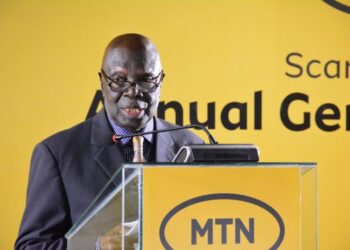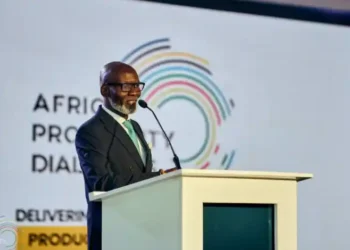The National Pensions Regulatory Authority (NPRA) has taken a significant step to increase pension coverage among workers in the informal sector. By 2026, the regulatory body seeks to boost pension penetration from a meager 6 percent to a remarkable 25 percent.
Despite widespread misconceptions about pensions in the informal sector, the NPRA’s Chief Executive Officer, Hayford Attah Krufi, stressed the Authority’s steadfast commitment to attaining this goal.
Mr. Krufi made these remarks at a brief ceremony held to commemorate the complete completion of the SECO project, during which he highlighted on the significant progress already achieved.
“Until just two years ago, a paltry 1 percent of Ghanaians in the informal sector had registered for a pension scheme. Today, we have managed to raise that figure to 6 percent.”
Hayford Attah Krufi
According to him, while the pace of progress may be gradual, it is steady, and the NPRA’s strategic plan sets forth an ambitious target of 25 percent penetration by 2026.
The persisting assumption that pensions are only available to employees of the formal sector is the main challenge the NPRA faces in its mission to expand pension coverage.

Mr. Krufi urged people to put aside this false notion and emphasized the significance of pensions for workers in the informal sector.
Through a comprehensive sensitization drive, the NPRA, he said, aims to dispel myths surrounding pensions and emphasize their benefits to all workers, regardless of their employment status.
Accroding to him, in pursuit of its objective, the NPRA has sought to leverage the technical expertise and knowledge offered by the Swiss government. Collaboration with the Swiss Secretariat for Economic Affairs has enabled the NPRA to implement a robust risk-based framework and supervision systems.
These measures, he disclosed, were designed to tackle challenges such as non-compliance among industry players and ensure the sustainable growth and regulation of Ghana’s burgeoning pension industry.
Proposal To Reorganize $2.7 billion In Pension Funds Strongly opposed By Labor Unions
Meanwhile, a new plan to restructure the $2.7 billion pension funds under the Domestic Debt Exchange Program (DDEP) has been vigorously criticized and rejected by organized labor organizations. This rejection follows the earlier refusal by the Board of Trustees of Pension Funds to accept the proposed debt restructuring plan.
Dr. Yaw Baah, the Secretary-General of the Trades Union Congress (TUC), expressed their determined opposition, emphasizing that after carefully reviewing the proposal and accompanying documentation, they came to the firm conclusion that the proposal essentially involves reintegrating pension funds into the DDEP.

This stance is in direct contrast to the initial agreement between the government and organized labor, wherein the latter was exempted from participating in the DDEP.
The new debt restructuring proposal put forth by the government, as acknowledged by the Finance Minister, Ken Ofori-Atta, sought to engage pension funds in an alternative program for debt restructuring.
However, labor unions maintain that this would effectively undermine the previous agreement and drag pension funds back into the DDEP, a proposition they staunchly oppose.
The resistance from organized labor adds a significant hurdle to the government’s efforts to restructure its debt obligations and regain financial stability.
As tensions escalate between the government and labor unions, finding common ground becomes increasingly crucial.
Read also: SSNIT Expresses Sadness About Massive Number of Workers not Paying Pension





















